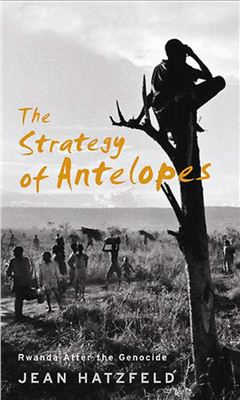Publisher: Editions du Seuil, Paris, 2007. 256 pages. Language:
English. Translated from French by Linda Coverdale.
This, Jean Hatzfeld's third book on the Rwandan genocide, opens with a joyous description of a wedding. The book, which like its two predecessors won literary prizes when it originally appeared in France, is a mosaic of themes and individual stories.
The experiences of the massacre, which went beyond death or fear or hopelessness into a new territory of existential nihilism, have profoundly shaken those who survived them. In addition to psychological tremors, lapses in concentration, grief, nightmares, fear, loneliness and bouts of alcoholism, Hatzfeld observes a profound shift in inteal philosophy. Many survivors have remarried, ostensibly picking up the pieces, but the knowledge that life can tip in a moment into hell has changed all of them.
From time to time, Hatzfeld breaks the suspension of authorial judgment that he kept in his previous books and probes the questions of why and how. He considers the role of God and faith and discovers that both victims and killers alike have slipped these moorings. He reads Hannah Arendt and Primo Levi, who asked the same questions of the Holocaust, and honestly acknowledges the impossibility of his task: "Writing can't replace the testimony of the dead."
(The Observer review)
This, Jean Hatzfeld's third book on the Rwandan genocide, opens with a joyous description of a wedding. The book, which like its two predecessors won literary prizes when it originally appeared in France, is a mosaic of themes and individual stories.
The experiences of the massacre, which went beyond death or fear or hopelessness into a new territory of existential nihilism, have profoundly shaken those who survived them. In addition to psychological tremors, lapses in concentration, grief, nightmares, fear, loneliness and bouts of alcoholism, Hatzfeld observes a profound shift in inteal philosophy. Many survivors have remarried, ostensibly picking up the pieces, but the knowledge that life can tip in a moment into hell has changed all of them.
From time to time, Hatzfeld breaks the suspension of authorial judgment that he kept in his previous books and probes the questions of why and how. He considers the role of God and faith and discovers that both victims and killers alike have slipped these moorings. He reads Hannah Arendt and Primo Levi, who asked the same questions of the Holocaust, and honestly acknowledges the impossibility of his task: "Writing can't replace the testimony of the dead."
(The Observer review)

